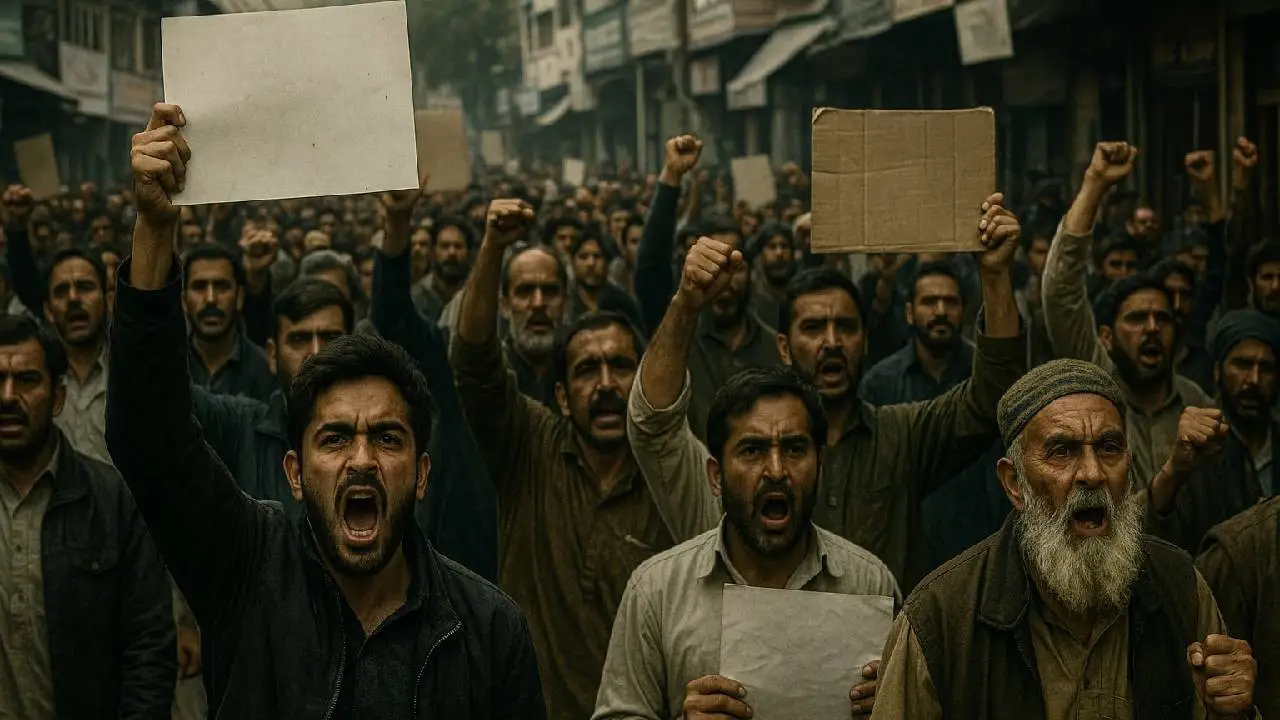
POK (Credit: OpenAI)
For months, people in POK have been facing long power cuts, water shortages and rising taxes. Daily life became harder, and families struggled to manage basic needs. People felt that funds meant for them were being used elsewhere. No one was listening to their complaints even when they asked calmly. Slowly, frustration turned into collective anger. The streets filled not because someone called them, but because living had become painful. The protests are not sudden, they are the result of years of silent suffering.
Pakistan had long promised the people of POK a better life and secure future. But schools remained underfunded, hospitals lacked medicines, and job opportunities hardly appeared. Speeches and rallies talked about dreams, but homes stayed dark and empty. People realized that their future was talked about only during political speeches. The difference between promises and reality became too big to ignore. This broke the trust that held the region quiet for decades. When trust breaks, silence also ends.
Some young men were seen holding the Indian tricolour during the demonstrations. This was not a political campaign or any group’s strategy. It was a symbol expressing the hope for dignity and stability. They did not shout that they want to join India immediately. They simply wanted to be seen and respected as humans. The tricolour came into the picture because they saw development across the border. Hope naturally moves towards the place where light is visible.
The government understood that this protest was not emotional but deeply rooted in survival. When problems come from hunger, unemployment and daily struggle, force cannot stop them. That is why security forces were deployed across various towns in POK. Internet services slowed down and media reporting got restricted. But the voices did not stop; they only grew sharper. People are now demanding rights instead of waiting for promises. Once rights become a public movement, it becomes difficult for any power to stop it.
Conversations in tea shops, buses and marketplaces now mention India’s development. Roads, electricity supply, employment systems and public services are often compared. People are not discussing politics but daily life improvements. They are asking where respect and future security are possible. The idea of India is appearing as a symbol of opportunity. The shift is subtle but visible. Hope always travels where life seems possible.
For many years, debates on Kashmir were led by leaders and officials. For the first time, the people of POK themselves are speaking about their own future. The movement is not about borders now, it is about life conditions. Decisions may no longer be written only in parliament rooms. They may now be shaped in the streets by common citizens. This moment could shape the region’s next decade. History often changes when ordinary people find their voice.
If people continue to speak and stay united, change will come. If authorities respond with understanding instead of pressure, solutions can be built. Respect and rights could replace fear and silence. Families could hope again, not just wait. Roads, jobs and services could become real, not promises. The future of POK depends on how strong the voices remain. And today, those voices are louder than they have ever been.





Copyright © 2026 Top Indian News
